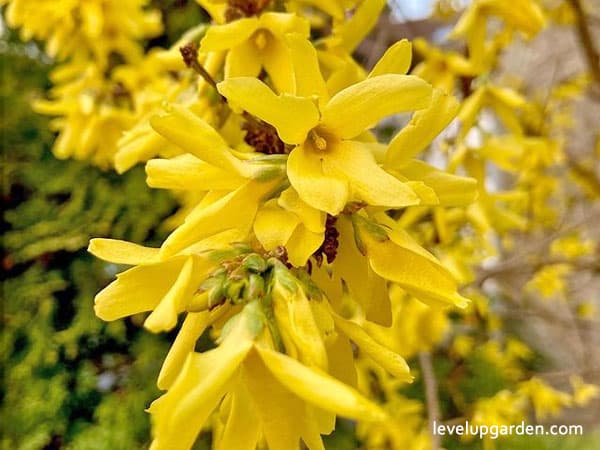Hass Avocado Tree (Persea americana ‘Hass’) is the most popular avocado because of its wonderful flavor. You don’t have to pay supermarket prices anymore. These trees are self-pollinating, so you only need one tree for pollination.
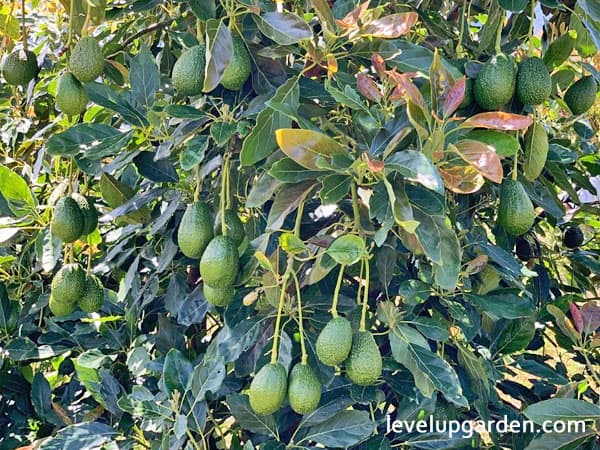
Now you don’t have to live in a tropical climate to grow your own avocados. You can plant them in patio containers wherever you live. Just bring them indoors during the cold winter months. That way, your Hass avocado tree will grow regardless of the climate.
Read on to learn everything about the tree before you decide to make a purchase and grow it in your garden.
I. Hass Avocado Tree Profile – An Overview of the plant
| Common Name | Avocado Tree |
| Botanical Name | Persea Americana ‘Hass’ |
| Native Area | North America, Central America, Asia |
| Family | Lauraceae |
| Plant Type | Tree, Fruit |
| Hardiness Zones | 9 – 11 |
| Growth Rate | Fast |
| Mature Height | 15-20 ft. |
| Mature Width | 5-8 ft. |
| Sunlight | Full-Partial |
| Soil Type | Loamy, Sandy, Well-drained |
| Soil pH | Acidic, Neutral |
| Bloom Time | Late Winter, Spring, Early Summer |
| Flower Color | Yellow, Green |
| Toxicity | Toxic to pets |
II. Hass Avocado Tree Appearance
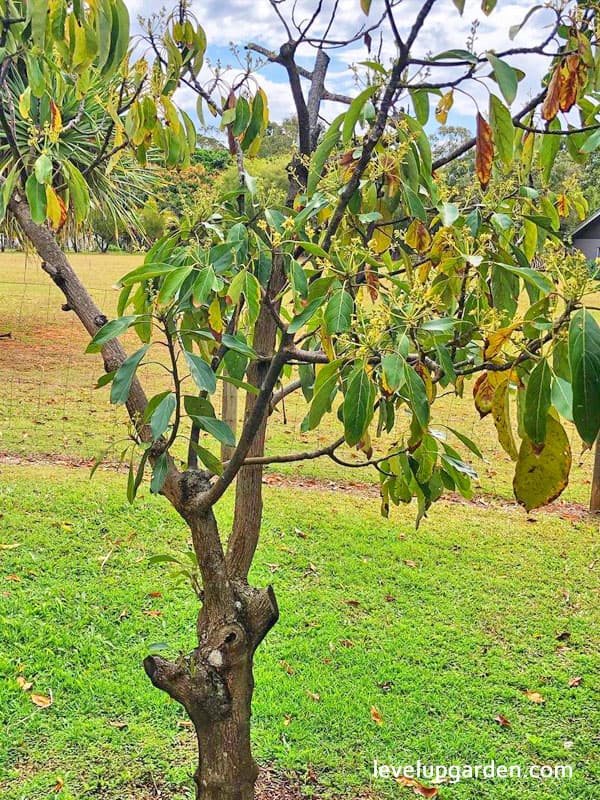
The leaves are glossy, leathery with a vein-like pattern, and densely evergreen. It grows to 3 m tall when planted in containers and 3 m tall when planted in the ground. Hass avocado has green skin on the tree. When harvested, the skin becomes flabby and dark purple-black. The fruit is heavy, weighing 200-300 grams.
III. Hass Avocado Tree Growing and Care Conditions
The fruiting trees grow to 15 to 20 feet tall and 5 to 8 feet wide. However, when grown in containers, they are 5 to 7 feet tall and can be easily harvested.
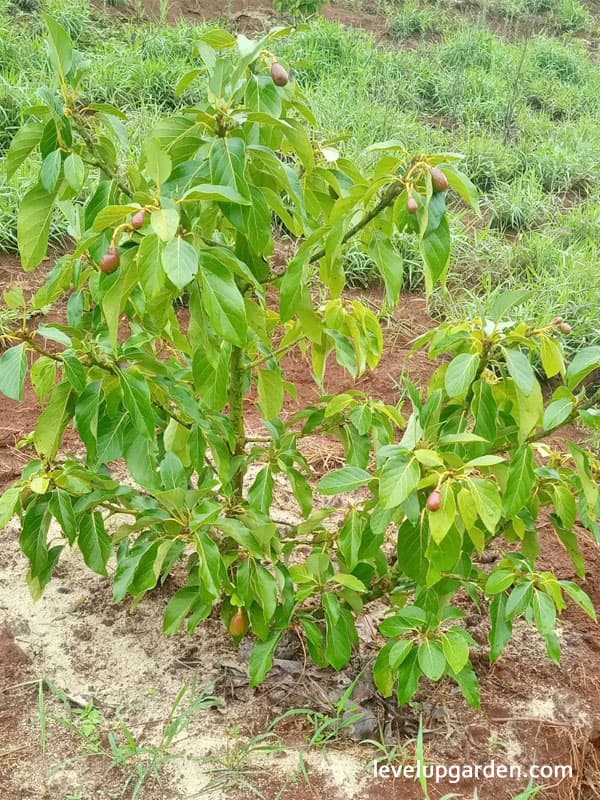
- Planting: A sunny location is sufficient, but for a large avocado crop, choose a location that will provide sufficient sunlight for the Hass avocado tree to be planted. The spacing between the Hass trees is also important. Avocado trees should be spaced about 15 feet from other trees and plants.
- Watering: At planting time, water the young avocado tree to ensure that it has enough water. Otherwise, wait for the soil to dry out between waterings. Watering adequately once a week is generally all the avocado needs.
- Sun Exposure: Like other tropical plants, the Hass Avocado Tree thrives in lots of sunlight. This tree should be planted in a location that receives at least 8 hours of sunlight each day. This tree can tolerate partial shade, but it grows best and produces more fruit when kept in full sun.
- Fertilizer: Feed the Hass avocado tree with a balanced fertilizer in spring, summer, fall, and winter, one year after planting.
- Soil Requirements: The best soil for Hass avocado trees is loose loamy or sandy with a pH value of 6.5 or less. Nutrient roots are close to the surface and sensitive, so drainage is critical. Excessive moisture can cause root rot.
- Temperature: Hass avocados prefer temperatures of 60 to 80 degrees Fahrenheit, making them well suited to the Southern California climate. As they age, they can tolerate up to 28 degrees, but young trees cannot withstand that level of cold.
- Pruning: Haas avocados should be lightly pruned for several years after planting to maintain the appearance and to remove damaged branches. Pruning occurs in the spring.
- Pests and Diseases: Phytophthora, which causes root rot, fruit rot, and collar rot, is spread by watering. Avocado black striped beetle causes cankers, but its own cause is unknown. Common pests on Hass avocado trees include the avocado mite, avocado brown mite, and persea mite. All of these can be treated with neem oil.
IV. Uses
Nutritionally, Hass avocados have a higher fat content than other varieties, a richer flavor, and a smoother, creamier texture.
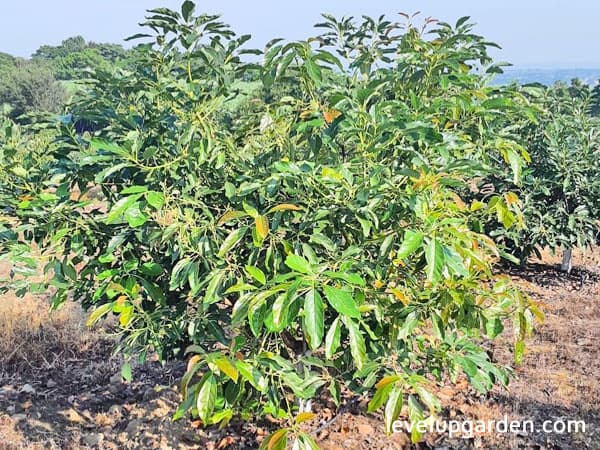
Hass avocados may support heart health. Avocados are high in fat, 60% of which is monounsaturated fat. Research suggests that they may help prevent heart disease and lower blood pressure. They are also an excellent source of potassium, folate, and fiber, all of which are beneficial to the heart and cardiovascular system.
V. Should I buy a Hass Avocado Tree? Is this the tree for your garden?
People living at the southern tip of the United States and further south have a unique opportunity to grow avocado trees in their gardens. This evergreen, tall fruit tree is best known for its healthy, creamy fruit. Its thick, bright green leaves are also grown as ornamental.
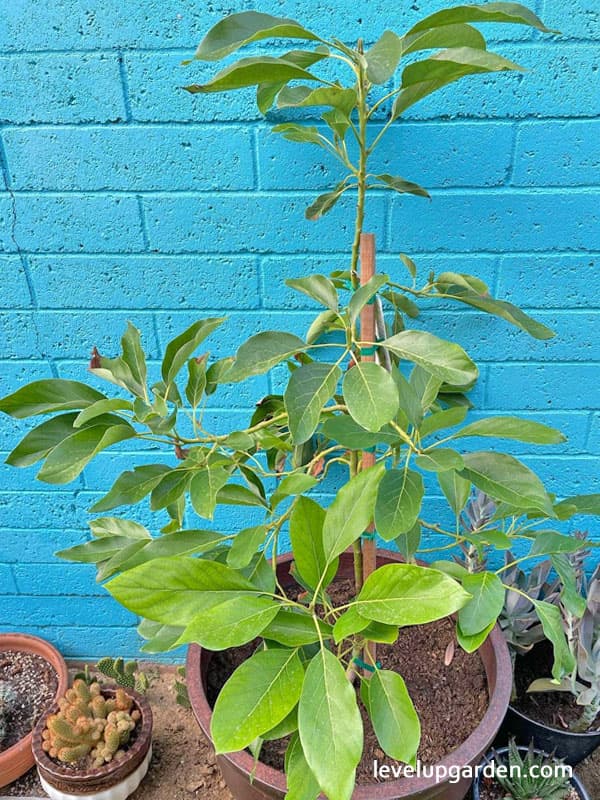
The delicious and popular Hass can now be enjoyed homegrown much faster than growing it from seed. Growing your own Hass avocado tree at home makes trips to the supermarket a thing of the past. Hass is so expensive in the store, you can save time and money. It is better to buy two trees in a pair, as they will produce more fruit.
The best part is that the unique taste of our Hass avocado fruit is better than anything you can buy in the store. You can save hundreds of dollars, especially since you can expect your trees to bear fruit every year for 40 years or more. The creamy pulp of the Hass is delicious in everything from its classic use in salads and guacamole to its use in cooking and as a complement to the popular avocado toast.
VI. FAQs
How long does it take for a Hass Avocado Tree to bear fruit?
If a tree is purchased and planted, the first fruit will probably appear three to four years after planting. If grown from seed, it is said to take 5 to 10 years to bear fruit.
Where do Hass Avocado Trees grow?
Hass Avocado tree prefers a well-drained, well-ventilated, sunny location. It cannot tolerate freezing temperatures.
Why are Hass avocados better?
Like other avocados, Hass avocados ripen only after being removed from the tree and can be left on the tree for several months after the fruit has matured. Nutritionally, Hass avocados have a higher fat content than other varieties, a richer flavor, and a smoother, creamier texture.

